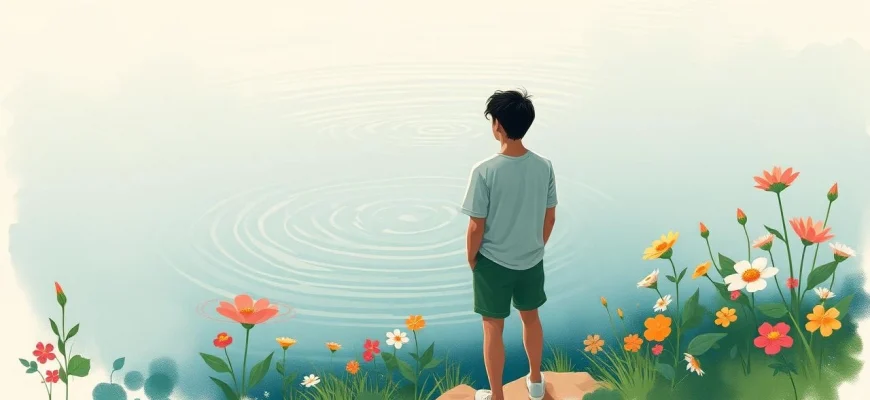If you were captivated by the artistic brilliance and profound storytelling of 'Mishima: A Life in Four Chapters' (1985), you're likely searching for more films or shows that offer a similar blend of biographical depth, visual poetry, and philosophical introspection. This article explores 10 movies and series that echo the themes, style, or emotional impact of Paul Schrader's masterpiece. Whether you're drawn to its nonlinear narrative, striking cinematography, or exploration of identity and art, these recommendations will satisfy your craving for thought-provoking cinema.
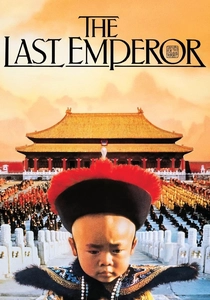
The Last Emperor (1987)
Description: Similar to 'Mishima: A Life in Four Chapters', 'The Last Emperor' is a biographical film that explores the life of a complex historical figure, Puyi, the last Emperor of China. Both films use a non-linear narrative structure and visually stunning cinematography to delve into the protagonist's inner world and historical context. The films also share themes of identity, power, and the intersection of personal and political life.
Fact: Directed by Bernardo Bertolucci, it was the first Western film granted permission to shoot in the Forbidden City. It won all nine Academy Awards it was nominated for, including Best Picture and Best Director. The film's score was composed by Ryuichi Sakamoto, who also acted in the film as Masahiko Amakasu.
 Watch Now
Watch Now 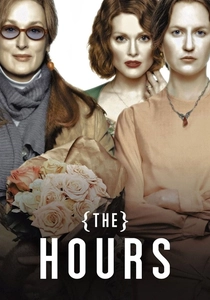
The Hours (2002)
Description: Like 'Mishima', 'The Hours' explores the creative process and the relationship between art and life through interwoven narratives. Both films deal with writers and the impact of their work across time. They share a literary sensibility and use of temporal shifts to explore their themes.
Fact: Based on Michael Cunningham's Pulitzer Prize-winning novel. Features three parallel stories connected by Virginia Woolf's novel 'Mrs. Dalloway'. Nicole Kidman wore a prosthetic nose for her role as Virginia Woolf.
 Watch Now
Watch Now 
I'm Not There (2007)
Description: Similar to 'Mishima's' fragmented portrayal of its subject, 'I'm Not There' uses multiple actors to portray different aspects of Bob Dylan's persona. Both films are unconventional biopics that reject linear narrative in favor of a more impressionistic approach. They share themes of artistic identity and self-reinvention.
Fact: Features six different actors playing versions of Bob Dylan, including Cate Blanchett. Director Todd Haynes was sued by Dylan's music publisher for using his songs without permission (the case was settled). The title comes from a Dylan basement tape recording that was officially released in
 Watch Now
Watch Now 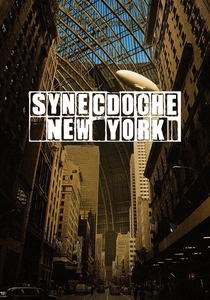
Synecdoche, New York (2008)
Description: Like 'Mishima', 'Synecdoche, New York' is a deeply introspective film about art, life, and the passage of time. Both films use complex narrative structures and surreal elements to explore their protagonists' psychological landscapes. The films share themes of mortality, artistic legacy, and the blurring of reality and fiction.
Fact: Charlie Kaufman's directorial debut. The title is a play on words combining 'synecdoche' (a figure of speech) with Schenectady, New York. Philip Seymour Hoffman's character spends decades building a life-size replica of New York City inside a warehouse.
 Watch Now
Watch Now 
The Diving Bell and the Butterfly (2007)
Description: This film shares with 'Mishima' a profound exploration of the human spirit constrained by physical limitations. Both use innovative visual techniques to represent interior states - 'Mishima' through stylized theatrical sequences, 'The Diving Bell' through first-person perspective. They both deal with themes of creativity flourishing under constraint.
Fact: Based on the memoir by Jean-Dominique Bauby, who wrote the book by blinking his left eyelid. Director Julian Schnabel won Best Director at Cannes for this film. The film's cinematographer, Janusz Kamiński, is a frequent collaborator with Steven Spielberg.
 Watch Now
Watch Now 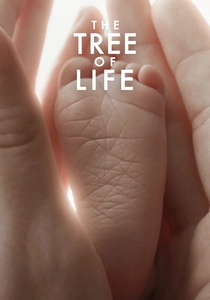
The Tree of Life (2011)
Description: Both 'The Tree of Life' and 'Mishima' are ambitious, visually stunning meditations on life, memory, and meaning. They use non-linear narratives and blend personal stories with grand philosophical themes. The films share a poetic approach to cinema and a concern with spiritual questions.
Fact: Terrence Malick spent decades developing the project. Features a controversial extended sequence depicting the creation of the universe. Brad Pitt's character was partly based on Malick's own father.
 Watch Now
Watch Now 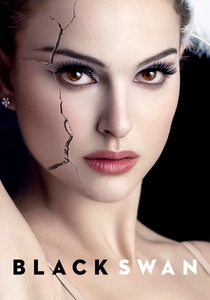
Black Swan (2010)
Description: Like 'Mishima', 'Black Swan' depicts the obsessive pursuit of artistic perfection and the psychological toll it takes. Both films use heightened visual styles to represent their protagonists' inner turmoil. They share themes of duality, performance, and self-destruction.
Fact: Natalie Portman trained in ballet for a year to prepare for her role. Darren Aronofsky originally conceived the film as a companion piece to 'The Wrestler'. The film's budget was just $13 million but it earned over $300 million worldwide.
 Watch Now
Watch Now 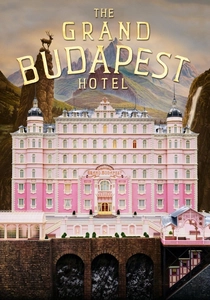
The Grand Budapest Hotel (2014)
Description: While tonally different, 'The Grand Budapest Hotel' shares with 'Mishima' a highly stylized visual approach and a concern with memory and nostalgia. Both films use distinct color palettes and carefully composed frames to create their unique worlds. They also share a fascination with storytelling and the passage of time.
Fact: Inspired by the writings of Stefan Zweig. Features three different aspect ratios representing different time periods. Ralph Fiennes' first comedic lead role in a film.
 Watch Now
Watch Now 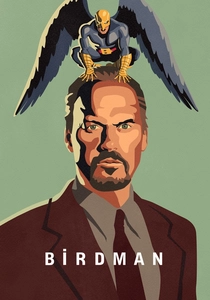
Birdman or (The Unexpected Virtue of Ignorance) (2014)
Description: Both 'Birdman' and 'Mishima' explore the tension between artistic ambition and personal demons. They share a self-reflexive quality, with 'Birdman's' apparent single-take style mirroring 'Mishima's' theatrical staging. Both films blur the line between performance and reality.
Fact: Appears to be filmed in one continuous shot (though actually composed of several long takes). Michael Keaton's character is a washed-up actor famous for playing a superhero, mirroring Keaton's own career. The drum score was performed live during filming by jazz drummer Antonio Sanchez.
 Watch Now
Watch Now 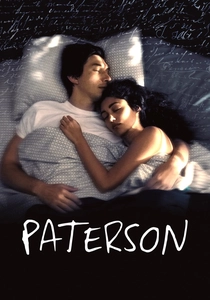
Paterson (2016)
Description: While more subdued in tone than 'Mishima', 'Paterson' shares a similar focus on the artistic process and the quiet, everyday moments that shape a creative life. Both films explore the relationship between art and reality, though 'Paterson' does so through a minimalist lens. The films also share a poetic sensibility and attention to visual composition.
Fact: Directed by Jim Jarmusch, known for his minimalist style. The film's protagonist is a bus driver and poet named Paterson, living in Paterson, New Jersey. The poems in the film were written by Ron Padgett, a real-life poet associated with the New York School.
 Watch Now
Watch Now 
